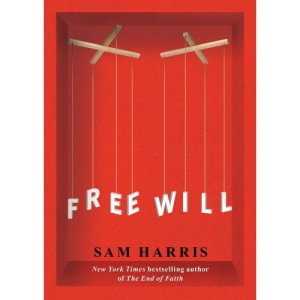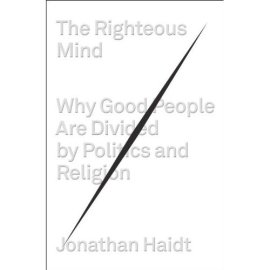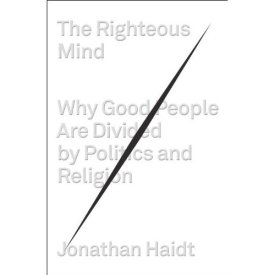Blog Archives
I Have “Chosen” Determinism
 This is the conclusion to my previous post: I Will Choose Free Will
This is the conclusion to my previous post: I Will Choose Free Will
Well I’ve finished the new Sam Harris book “Free Will”. It turns out this book is very short and a quick read. I highly recommend buying the economical electronic version. This is Sam’s second short book and I have to say, I like this format a lot. This format may become a new niche in the digital book age along the lines of the “Kindle Single”.
So let’s dig into the book. Here’s a section where Sam addresses the concerns of determinism and fatalism.
As Dan Dennett and many others have pointed out, people generally confuse determinism with fatalism. This gives rise to questions like “If everything is determined, why should I do anything? Why not just sit back and see what happens?” This is pure confusion. To sit back and see what happens is itself a choice that will produce its own consequences. It is also extremely difficult to do: Just try staying in bed all day waiting for something to happen; you will find yourself assailed by the impulse to get up and do something, which will require increasingly heroic efforts to resist. And the fact that our choices depend on prior causes does not mean that they don’t matter. If I had not decided to write this book, it wouldn’t have written itself. My choice to write it was unquestionably the primary cause of its coming into being. Decisions, intentions, efforts, goals, willpower, etc., are causal states of the brain, leading to specific behaviors.
I agree that we need to keep determinism and fatalism separate. Although, do we live in a completely deterministic universe if there are random events at the quantum level? Either way, there is little room for freedom here. A thought popped into my head as I read this, a person suffering from clinical depression has the exact opposite problem regarding leaving their bed in the morning. They find it extremely difficult to get out of bed and it takes a heroic effort in order to do so. This kind of depression is certainly not a conscious choice.
The men and women on death row have some combination of bad genes, bad parents, bad environments, and bad ideas (and the innocent, of course, have supremely bad luck). Which of these quantities, exactly, were they responsible for? No human being is responsible for his genes or his upbringing, yet we have every reason to believe that these factors determine his character. Our system of justice should reflect an understanding that any of us could have been dealt a very different hand in life. In fact, it seems immoral not to recognize just how much luck is involved in morality itself.
I definitely agree with this sentiment, and now see if you can wrap your mind around Sam’s conclusion:
Not only are we not as free as we think we are—we do not feel as free as we think we do. Our sense of our own freedom results from our not paying close attention to what it is like to be us. The moment we pay attention, it is possible to see that free will is nowhere to be found, and our experience is perfectly compatible with this truth. Thoughts and intentions simply arise in the mind. What else could they do? The truth about us is stranger than many suppose: The illusion of free will is itself an illusion.
I’d love to read a book like this from a compatibilist and be able to more capably compare and contrast the views. I still think that we have a measure of free will. It’s just a very constrained and limited form of freedom which some people like Sam argue is not free at all. Either way, the lesson we need to take away from this is that people are heavily constrained by their genes, environment, and good/bad fortune. Let’s spend more time understanding people, helping them where we can, and less time judging and demonizing them.
I’d love to hear your thoughts, leave your comments below.
I Will Choose Free Will
Each of us, a cell of awareness; imperfect and incomplete
Genetic blends, with uncertain ends; on a fortune hunt that’s far too fleetYou can choose a ready guide in some celestial voice
If you choose not to decide, you still have made a choice
You can choose from phantom fears and kindness that can kill
I will choose a path that’s clear
I will choose free will– Rush, “Free Will”
 I just started reading a new book by Sam Harris entitled “Free Will” in which Sam argues that free will is an illusion. Clearly he makes this argument in opposition to religious arguments about choosing to follow and obey God or not. But also he makes this argument in opposition to his good friend and compatibilist Dan Dennett. The compatibilist view states that free will and determinism are not mutually exclusive and can co-exist.
I just started reading a new book by Sam Harris entitled “Free Will” in which Sam argues that free will is an illusion. Clearly he makes this argument in opposition to religious arguments about choosing to follow and obey God or not. But also he makes this argument in opposition to his good friend and compatibilist Dan Dennett. The compatibilist view states that free will and determinism are not mutually exclusive and can co-exist.
I find that there are few topics more confusing than the free will vs. determinism debate. Most people, including me, seem to have a gut reaction that I am the author of my actions and that I do have a form of free will.
However, as I grow older, I see more and more the power of determinism. I did not choose to be born in this era. I did not choose to be born in the United States. I did not choose to be born into a family of conservative Christians. I did not choose the genes I was given. I did not choose to suffer from Social Anxiety Disorder. I had no role in developing the drug that has largely cured my disorder. I did not choose to be born at all. The number of things that I did not choose is so large that they seem infinite. And the “choices” that I’ve made are so small and petty that they seem almost insignificant. Still it feels like I am not just an automaton and it seems like I do have a measure of freedom at some level.
What about faith? Did I choose to leave the Christian faith? Or was I compelled by experiences and reasoning that parts of my brain could not ignore? I certainly did not choose to enter the Christian faith. I was born into it and it became my default position. And I think that this is the case for many religious people. They are born into their religion, they learn to love it, they internalize it, and unless they undergo a dramatic experience that forces them to question everything they hold sacred, they will not leave the faith.
Right now I think that human beings have a limited form of free will. It is not “pure” free will, because such a thing could never exist. We are heavily constrained by our environment, our biology, and the very nature of our existence. But I think we have a small measure of constrained choice. Some flexibility that comes from the pre-frontal cortex that allows us to override and deny our more ancient biological urges. We can make small but high-level, informed decisions that have major consequences in the long run.
I don’t think I can give up on the idea of free will. Not yet. Not until my back is absolutely up against the wall.
I find that my views on this subject swing back and forth like a pendulum. This subject matter is obviously very complex and I’m sure I’ll have more to say as I finish reading the book, so watch this space. Also, I’d love to hear your thoughts and discuss this topic with you, please add your comments below.
Introversion Expert Susan Cain at TED 2012
 TED 2012 is here! Actually it looks like the final sessions will be wrapping up this evening, but the videos are just starting to be released. For those who have never heard about TED, it is a “genius conference” where luminaries from the fields of technology, entertainment, and design discuss their groundbreaking achievements and ideas. The tag-line of TED is “ideas worth spreading” and the 18 minute “TED Talks” are released free to the world.
TED 2012 is here! Actually it looks like the final sessions will be wrapping up this evening, but the videos are just starting to be released. For those who have never heard about TED, it is a “genius conference” where luminaries from the fields of technology, entertainment, and design discuss their groundbreaking achievements and ideas. The tag-line of TED is “ideas worth spreading” and the 18 minute “TED Talks” are released free to the world.
I’m looking forward to hearing the talks from a number of speakers. Neuroscientist Steven Pinker was on the slate this year. Reggie Watts performed some of his unique brand of live music, can’t wait to hear what he came up with. Also, psychologist Jonathan Haidt spoke about some of the themes in his new book about divisions of morality in politics and religion. I await all of these talks with bated breath, but today they released a video from one of the speakers that I am most interested in, Susan Cain. A few months ago Susan wrote a great article in the New York Times that I commented on earlier and she recently published an outstanding book called Quiet: The Power of Introverts in a World That Can’t Stop Talking. Without any further ado, here is Susan Cain at TED:
Our Amazing Perception
I am currently watching a wonderful lecture series from The Teaching Company called “Understanding the Secrets of Human Perception”. In lecture 18 “Illusions and Magic” Professor Vishton walks through a number of interesting perceptual illusions.
The first is the Café Wall Illusion:
All of the horizontal lines in this image are perfectly straight, but we infer a tilted edge because our brains decide that this is the best explanation for the distributions of brightness in the image.
The next perceptual oddity is motion-induced blindness. Stare at the green dot in the center of the video and watch the green dots disappear:
The yellow dots are always displayed above the grid and are therefore projecting on your retina for the entire length of the video. However, deep in your visual perception system the motion signals override the yellow dots. Motion can often blind us to very large and salient things in the world around us, something which magicians often use to their advantage.


 I’m no longer a Christian but I’m still a big fan of
I’m no longer a Christian but I’m still a big fan of 


